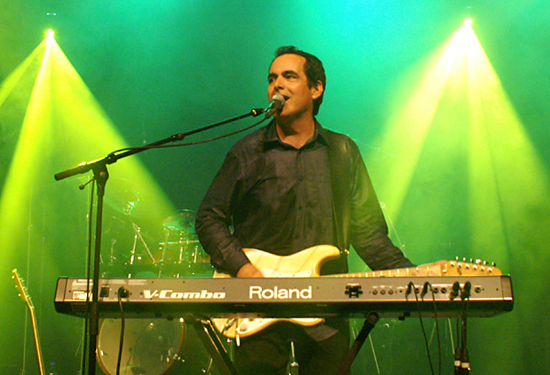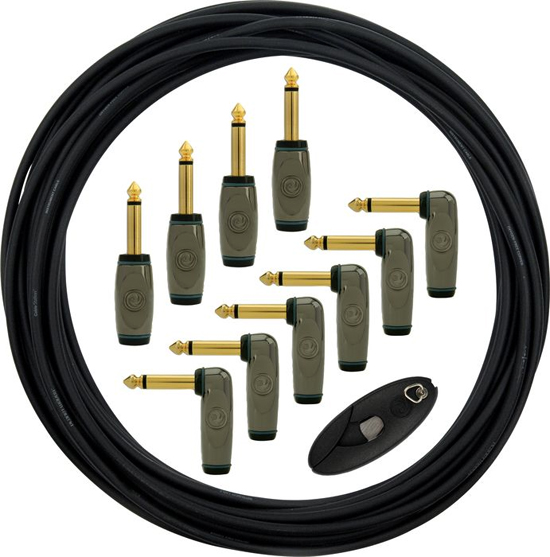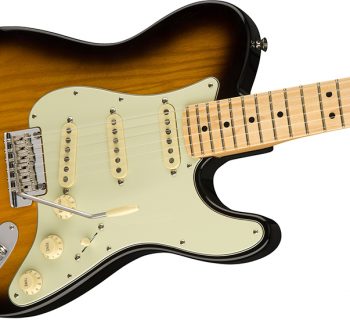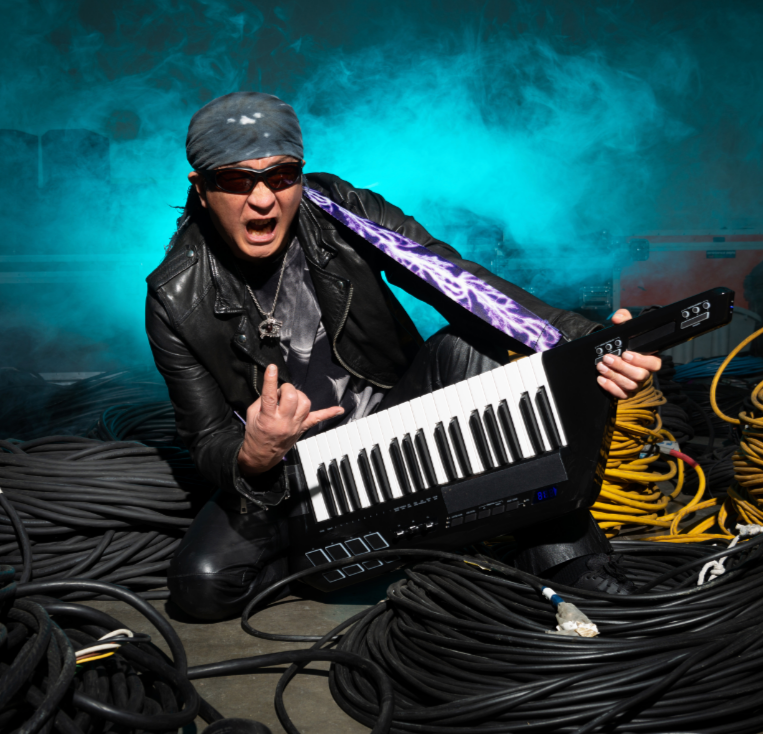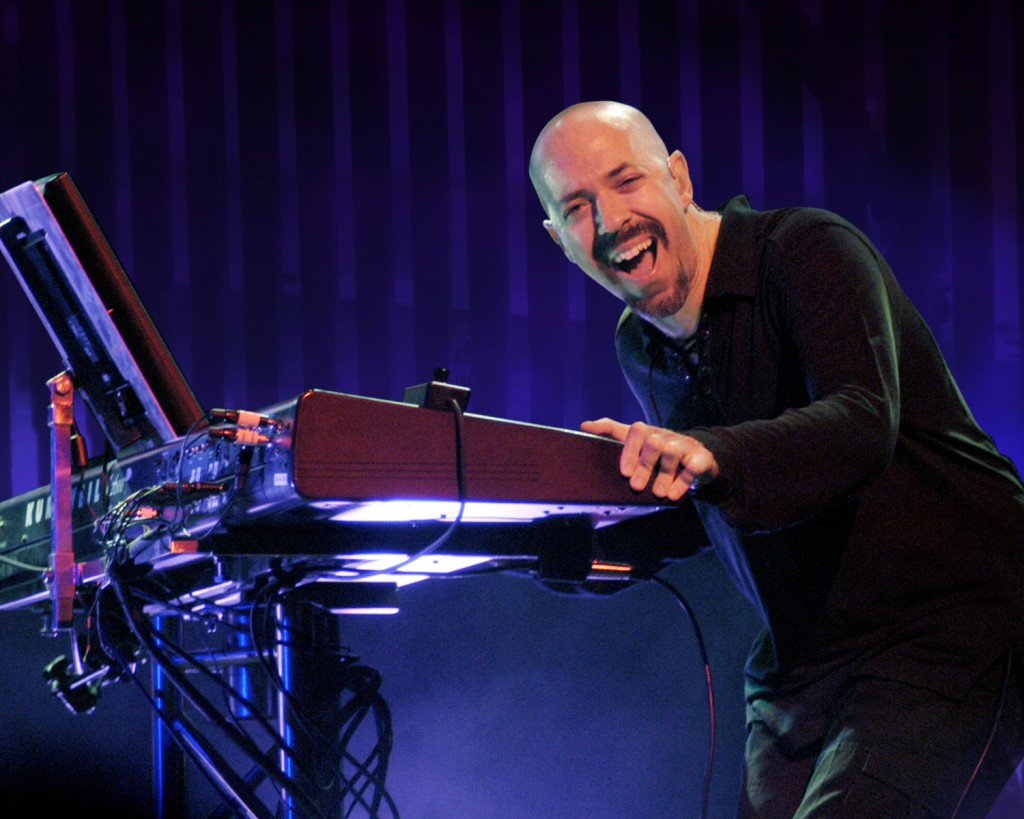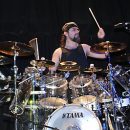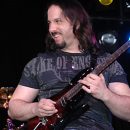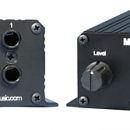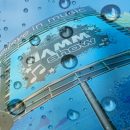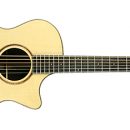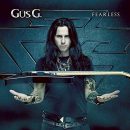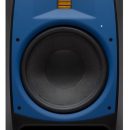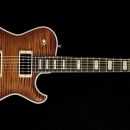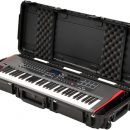From Spock's Beard to Transatlantic to revered solo artist, Neal sits at the top of the prog rock game
Neal Morse is no stranger to progressive rock fans, having co-founded Spock’s Beard with brother Alan before later embarking on a successful solo and super-group fueled career. The majority of Neal’s post-Spock’s Beard music features the extraordinary drumming talent of Mike Portnoy, who is also one quarter of Morse’s progressive rock super-group, Transatlantic, which also includes Marillion bassist Pete Trewavas and The Flower Kings guitarist/vocalist Roine Stolt.
A formidable talent whether playing keyboards, guitar, drums, or singing, Neal can out-shred most of us on any number of instruments, but perhaps his greatest talent lies in the composition of incredibly rich music that combines outstanding technical musicianship, majestic vocal harmonies, and insightful lyrics. His self-named solo efforts tend to be labeled as Christian progressive rock due to the religious overtones of his lyrical content, whereas Morse’s Transatlantic output has a broader appeal with progressive rock fans who don’t like to have their sermons delivered via rock music. If you’re new to the world of Neal Morse, though, don’t let the religious overtones steer you away from his solo output. It’s killer music any way you slice it or describe it, regardless of your religious convictions. Inspiring stuff for any serious rock musician.
Morse has been busier than ever with new albums, tours, and concert DVDs. In 2009, Transatlantic released The Whirlwind, their first new studio release after an eight-year hiatus. Fans of ‘70s inspired progressive rock get a two-CD helping of amazing music here, and 2010 saw the band embarking on a massive world tour with three-hour long shows, captured on a fantastic live DVD.
This spring, Morse has released another solo CD, Testimony II. Once again, the output delivers a two-CD helping of melodic progressive rock, continuing the autobiographical story that he began on the first Testimony album. Musically, Testimony II draws some obvious inspiration from having come on the heels of a Transatlantic world tour, but it takes on a slightly more modern tone as heard on Morse’s last solo studio effort, Lifeline.
Testimony II features the musical contributions of drummer Portnoy and bassist Randy George, with Neal handling all guitar and keyboard duties. Among the very special guests, it features a complete Spock’s Beard reunion as well as guest contributions from guitar legend Steve Morse (no relation, for the record).
I think I get the 'most nerve of any human’ award for having the nerve to play drums after Mike Portnoy.
MPc: Let’s talk about the new Transatlantic album and concert DVD which is really fantastic and… over three hours of music! That must have been quite a tour, pulling off such involved music every night.
NM: Well, when I first saw the schedule and the set list, I was a little bit, like, “I don’t know if I’ll be able to do that.” [laughs] I really actually fought against it being as long as it was. It was actually, what, a three hour and 15 minute concert just about, with everything all in.
But my main concern actually was, Was I going to be able to sing all that stuff every night, you know? We had seven gigs in a row at one point! Seven concerts straight in a row. Plus, travel and all of that. And then it was 21 dates in all. It just looked like a really demanding thing, but I just felt like, when we did it, it was just right. It felt really good. It didn’t feel too long to me. And pretty much just about every night really sparkled in some way. And it was not… it was not too difficult and I actually wound up just really having a gas. It was great.
MPc: It was funny watching some of the behind-the-scenes documentary stuff. You had at least two hours’ worth of documentary stuff bundled in there, as well. I forget who it was that made a reference to Bruce Springsteen doing outrageously long concerts.
NM: Yeah, I think maybe Roine [Stolt, guitar] said that. It’s like, “C’mon, man, Bruce Springsteen’s 50 and he does four-hour concerts. We can do it.” I’m, like, well…
MPc: His music isn’t quite as complex…
NM: Yeah, no, he’s strumming on an A chord or whatever. This is quite a different thing. But ultimately I have to say, I have to admit I was wrong and they were right. It really was the right thing. We hadn’t played together in, eight years or whatever it was. And I think people would have been disappointed if we hadn’t done all our major pieces.
MPc: Let’s talk about the style of music. In Transatlantic, there’s a definite ‘70s prog vibe to the band. How did the concept for that come about? Was it preconceived that Transatlantic would be that style of prog, compared to the kind of progressive rock you’ve done on your own or with Spock’s Beard, or that Mike’s done with Dream Theater?
NM: Before we got together for the first time, we didn’t really discuss what we were going to do. But I think it was assumed, particularly with me being the leader in Spock’s Beard at that time, which was one of the leading, sort of neo-prog, ‘90s prog bands, and Roine Stolt of the Flower Kings… both Spock’s and the Flower Kings were very heavily influenced by ‘70s prog.
But it seemed to be the natural progression of, that’s kind of where we were coming from and what we love and where our writing tends to lead to. We don’t think, “Oh,” to ourselves, “we want to do something like Yes or something like this.” It’s kind of the natural flow what comes out of us, because that kind of music was so influential in our lives.

Transatlantic (L-R): Pete Trewavas, Mike Portnoy, Neal Morse, Roine Stolt
MPc: Who were the musical artists that influenced you as a musician, back when you were first really embracing playing rock or prog rock music?
NM: Well, let’s see. I was born in 1960. And when I was 12 years old, my dad was a music teacher and my parents were very liberal with us. If we [Neal and his siblings] wanted to go to a concert, they would take us and whatnot. And like most young men, young teenagers we were into metal. We got into Black Sabbath and stuff like that. So we went to see Black Sabbath and there was a relatively unknown band that was opening up for them called Yes. And when I saw Yes in ’72, it really made just a huge impact on me, because I had grown up singing in my dad’s choirs. My dad was mainly a choir director and he really liked a lot of eclectic music. We would sing classical music and Negro spirituals and pop songs and madrigals.
But I got very attracted to the power of rock and I loved The Beatles, like the pop melodies of The Beatles I had fallen in love with earlier, when I was 5 to about 10, you know, 1965 to about 1970. And when I saw Yes, I thought, Wow, here it is. Everything all in one big, long piece. They had rock elements and they had jazz elements and they had classical elements and then they had these beautiful vocals, too, these a capella vocals and things. And I thought, Oh, yeah, this is definitely somewhere I’d like to go.
But I didn’t really write any prog or did work on it until later on in my life. I became really focused on being a singer-songwriter. I was trying to get a record deal as a singer-songwriter in Los Angeles for most of my 20s, which would be the ‘80s. And when that didn’t pan out—it wasn’t until I kind of, sort of exhausted every avenue as a singer-songwriter that I suddenly had an awakening and decided, You know what? I never really wanted to be this brooding artist, anyway. When I was a kid, I wanted to write big pieces of music and fantastic epics and things.
And so I started to do that, but rather late in life, actually. It wasn’t until I was well into my 30s that I started to do that and then that music became the first Spock’s Beard album, and then Spock’s Beard began to take off doing that.
So, anyway, yeah, that’s a long answer to your question.
MPc: That’s good. It ties into another question, which was: Did you and your brother conceive of Spock’s Beard as a band from the start or was it more about you just writing this epic material and then piecing together musicians to back you guys up?
NM: Originally, I just got really inspired and I wrote, I think in a week or something, I wrote “The Light,” “Go the Way You Go,” and “The Water.” It was all in like a week or two weeks or something I wrote all this stuff. And I just demoed it on my little recorder and then I asked my brother Al to play on it. And he didn’t seem to care about it at first. Didn’t say anything about it, and he played really cool stuff on it and that was that.
And then I don’t know, about a month later he said, “Hey, you know, I’ve been listening to this stuff, this is really cool. Maybe we should put a band together.” It was actually Al’s idea. Because we were rather jaded, you know. I mean, I was. In L.A. trying to get a record deal all those years and never getting anywhere and I was, like, Oh, man, I don’t know. Bands. I’d been in so many bands that then broke up. And you work really hard and then they break up and it’s like, you know, divorce or something, and you don’t want to get married again.
MPc: Yeah.
NM: But Al was very persuasive and I thought, well, at least this would be different, because we wouldn’t be doing this in order to be a success. We were just doing this, we would just do it just strictly for love. And that was really how Spock’s Beard began. And, ironically, it became the first commercial success that I ever had when we actually set out to not be commercially successful. [laughs]
MPc: Yeah, that’s oftentimes the case.
NM: Yeah, isn’t that cool? That’s really cool. It’s like when you give up, that’s when you can receive. [laughs]
MPc: When Winona Judd sang her song, “Rock Bottom” — “When you hit rock bottom, the only place to go is up.” It’s like, okay, you work all these years trying to do the pop stuff and nothing happens. Finally you’re like, screw it, I’m going to do this artsy stuff and look what happens.
NM: Yeah. It’s a small market and… we made a big splash in a small pond, but hey, I was and still am absolutely thrilled to be able to do this music that I just love. I’m able to express myself fully, and be able to support my family and not have to go sling burgers or deliver pizzas or whatever. So it’s great.
MPc: How did your relationship with Mike Portnoy come about?
NM: Well, the first thing I heard about Mike was that somebody had — it was really before email was really that popular, in like ’96 or ’97, and stuff like that. I don’t know how I heard about it, somebody called me and said, “Hey, you know, there’s this guy, Mike Portnoy from Dream Theater that’s talking you up, talking about Spock’s Beard a lot. He really likes Spock’s Beard.” I said, “Oh, great.” And somebody I think sent me some press clippings where people were interviewing him and he would talk for two paragraphs or something about Spock’s Beard.
But I think the first time I actually spoke to him was when he called me. We had a mutual friend and he called me about doing a side project. I think that was the first time we actually spoke on the phone, if my recollection is correct. That was about in ’98, I think. Because we talked about it and we didn’t actually do it till ’99 and it didn’t get released, the first album didn’t get released, the SMPT:e album didn’t get released till 2000.
I know that because I have a picture on my wall of me and my kids when they were little and it has the date on the picture and it’s July of ’99 and I know that it was taken at the motel where I was staying when we were cutting the SMPT:e album.
So that was how that started. But we didn’t actually meet face-to-face till we were in the lobby of the studio in New York where we cut the first album.
MPc: So did the two of you start Transatlantic and then find the other guys to join?
NM: Well, yeah, it started with the two of us, but we didn’t play a note until we were all together. I guess you could say I was the one who contacted Roine and Mike was the one who contacted Pete [Trewavas, bass]. I had never heard Pete. But Mike gave me an assurance that it would be cool and I was, like, “Okay.”
MPc: You didn’t know Marillion’s music or you just didn’t know of Pete specifically as their bassist?
NM: All I knew of Marillion was I’d heard some of their old stuff in the ‘80s, with Fish. That was about all I knew, really very little.
MPc: Lets talk a little bit about your last studio album, Lifeline, which I love. That was my first foray into your solo work.
NM: Oh, cool.
MPc: I think I heard the song “Lifeline” playing on Morow Internet radio.
NM: Oh, I love Morow. That’s a great radio station.
MPc: I wonder, how to get more mainstream music listeners to learn that there’s this little radio button in iTunes and, if you click it, you’re going to open up this world of commercial-free music that you didn’t know is actually sitting there on your computer.
NM: Right. It’s incredible. Yeah, Morow is great. I’ve heard so much cool stuff on there. I’m, like, wow.
I had a girlfriend in the ‘80s that bought me a Strat.
MPc: Let’s talk about you as a musician. You really seem equally at home on keyboards and guitar. And, quite an exceptional player in both areas. Now, when you write songs — like, take the song, “Lifeline” from the last album, where do you start? Because you’ve got such fully conceived keyboard and guitar parts to your songs. Tell me about your songwriting process.
NM: As I recall, “Lifeline” — oh, wow, let’s see. I was in California. My dad was sick and we had rented an apartment for a month so we could help look after him. And I had set up just a keyboard and little computer speakers and my laptop. I was running in the morning on the beach and thinking about these things.
It started with keyboards, just in MIDI-land. Some of the songs on that album I wrote on guitar. Let’s see, what was the…
MPc: Probably the acoustic songs like “Way Home” and “So Many Roads.”
NM: Yeah. Yeah, those were written on the guitar. I remember “Way Home” I wrote actually on Santa Monica Beach. My kids were swimming and I was sitting there with the guitar and a chair. And I got the initial inspiration for that song there.
So it just depends. I write whenever and wherever. I hear it, I just hear things and sometimes it’s guitar things, sometimes it’s keyboard things. And then I start playing with it and see where it wants to go and start kicking around ideas and it’s just a process, I guess.
MPc: Do you always start with music and then lyrics? What comes first for you?
NM: Usually it’s music. It’s always a little different. But it helps me, if I have some kind of a lyrical idea. I remember like in “Lifeline,” I started writing the verse. And I had said something about a lifeline. I remember thinking, “Oh, that’s cool. That sounds like it might be a good chorus, maybe I should make more of a chorus with that, as well.” So sometimes it all gets all meshed together and the words end up driving the thing more than you think.
Especially when you’re writing a concept album like The Whirlwind, like Transatlantic’s Whirlwind. I felt like having that thought, the whirlwind thought sort of streaming through helped to guide the music in a way that’s hard to describe. It helps to hold the thing together and give you a vision for what you want to say, which helps to drive the music as well.
MPc: There’s very little published information about is your choice of gear. I wonder if we could talk a little bit about that, maybe start with your guitars and amps and effects and tell me about your preferred tools of the trade to get your sound.
NM: Well, for most of my life, I played — I had a girlfriend in the ‘80s that bought me a Strat, it’s like, at that time, sort of a run-of-the-mill ’74 Strat. It’s quite nice, though, I think. And that was my electric guitar of choice for a long time, until I made an album, a solo album of mine called One and I borrowed — I have a friend who’s a guitar collector, and he had a Gibson, a ’62 Gibson es 335.
I borrowed that and, man, I just fell in love with the way it played and the tone. And I put it through a [Mesa/Boogie] Rectifier and also an Orange amp. And it was just like, wow, that thing sang.
I never could afford to get a ’62, but several years ago, I was able to get a ’68 with a Bigsby on it. So I have a — it’s one of my favorite guitars to record with, because I like the brights — I like the treble and I also like the neck pickup, as well. So my electric guitar of choice is this old Gibson 335. I put it through a Rectifier, usually, and sometimes an Orange amp through the Rectifier cabinet.
MPc: That’s so funny, because when I listen to — going back to the song “Lifeline” that we spoke about, whenever I listen to it, the song hits me as something Trevor Rabin would have written for Yes during the 90125 era. And your sound hits me like, “Oh, he’s got to be playing a Strat through a Marshall.” And so to hear that it’s a 335 through a Rectifier is funny, because that’s such a surprise…
NM: Well, I do use the Strat sometimes. There are some songs and some pieces that I use the Strat on. But I’m pretty sure on “Lifeline” I used the 335.
And I try not to use much effects. I still use an Echoplex in the effects loop. I love the Echoplex, and I have a little BOSS compressor. And I try not to use too much in the effects loop because I feel like it denigrates the sound a little bit.
That’s it on the guitar. Acoustic guitar, I have a Yamaha and now I have a Babicz acoustic guitar that I really, really like. Babicz steel string. I have a Washburn 12-string and a Washburn nylon that I like very well, too. Those are my other guitars of choice.
In keyboard-land, I use the Minimoog Voyager for leads. For pianos, I use [Synthogy] Ivory.
MPc: I noticed in the concert DVD you had a CME controller, and there was a laptop to the side. I was wondering what it was running.
NM: It was running Apple Mainstage, which is the program that comes with Logic [for using plug-ins and virtual instruments in a live performance setting]. And I think it’s the greatest thing for live keyboard. Finally I got it sorted out so I’m not having the problems I was having. But I had some problems when I first started, a lot of breakdowns and things like that, in the middle of the concert. We finally got a tech out and sorted everything out before the end of the tour. Before the DVD, thank god.
I use Mellotron samples. In the studio, I use Hammond organ, the real organ, through a Leslie. No substitute for that. And then a variety of sounds from, some sounds from Mainstage. I also have the Minimoog, a software Minimoog synth, I use that. I use a variety of keyboards for this and that sound, there’s certain pads I like in this keyboard and the string sound I like in this keyboard and … So, you know, then there’s just a variety of things.
I felt like I came to a place in my path where I felt like, okay, it’s time to take a turn here.
MPc: I’m curious about some of your lyrics. On songs such as “The Way Home” and “So Many Roads,” were you singing about a sense of alienation that came from your parting ways with Spock’s Beard and Transatlantic back then, in order to pursue Christian rock?
NM: Oh, I don’t think so. Let’s see, it’s been a while since I’ve sung those songs. “The Way Home.” You know, I have to be honest, on “The Way Home,” I was thinking of a friend of mine that feels that way. Feels like he may have missed his calling, and is seeking God for direction.
“So Many Roads,” I was thinking of a lot of the young people that I talk to when I have church services that are… they’re looking for direction and they’re not sure which way to go. I think quite a few songs on the Lifeline album were not so autobiographical, but thinking of the conversations that I’ve had and sometimes, sometimes you write things kind of from a perspective of somebody else, about what they’re going through.
MPc: Sure. We can’t completely write about our own experiences because we’re writing more than we’ve got stories to tell sometimes.
NM: [laughs] Well, sometimes. I’m working on Testimony 2 right now — a second Testimony album. I had an album in 2003 called Testimony telling my story up to that point. And now I’m working on a second one. And it’s really interesting, because it’s totally different — it’s the opposite. Everything on there is absolutely true about my story. But other albums and other things aren’t necessarily autobiographical.
 MPc: Okay. Now, tell me about getting back together to make The Whirlwind. How did that come about?
MPc: Okay. Now, tell me about getting back together to make The Whirlwind. How did that come about?
NM: Well, it started with some conversations that I had with some different people and I just felt like… I felt like god was maybe leading me to do another Transatlantic album. And I had this thought about doing a whirl—writing a whirlwind piece and maybe presenting it to them. And I just prayed about it and considered it for about a year before I contacted them and then I contacted them and we wound up getting together and doing a piece called “The Whirlwind” that wound up being almost totally different from my original piece.
But, yeah, it was something that sort of gelled in my mind over a period of time and then I think it turned out to be just a wonderful, wonderful album and a great tour.
MPc: With something like The Whirlwind, how much of the music did you write before you got together with the guys? Was any of the writing done collaboratively in a traditional jam-type format?
NM: A lot of it was. Actually, a lot of the themes were just things that we came up with together. But then quite a bit of it, I would say maybe about a third of the album maybe was stuff that we already had and then two-thirds was stuff that we just created when we were together. Something like that.
It wasn’t just mine, my stuff that we came in with. Roine came with things, Pete came in with things.
MPc: I noticed, in watching the concert, you and Roine sing almost everything on “The Whirlwind.” But I noticed Pete actually did quite a bit of lead vocals on some of the songs from the encore set. Do you have any notion of who sings what when you’re working on the songs?
NM: We do, kind of. There’s usually some kind of “I thought about…” as we were writing it, who’s going to sing what. And, “oh, that’ll be good because we don’t want to have maybe one guy — namely me — singing too much.” And trying to have it be divvied around more to have it be really more of a group thing that’s not too dominated by any one person. So, yeah, those things are discussed, definitely.
MPc: Live, you tend to favor singing with a headset microphone.
NM: Yeah, that’s so that I can do all the keyboard stuff and move around. I can have my head be wherever, because I’m trying to play both keyboards at once.
MPc: It was a lot of fun, actually, when you were all changing instruments. In particular, you and Mike Portnoy trading off on the drum kit, mid song, without really losing a beat.
NM: Oh, yeah. Yeah, that was fun.
MPc: It was crazy!
NM: I think I get the “most nerve of any human” award, for having the nerve to play drums after Mike Portnoy. [laughs]
MPc: Or just sitting down at his kit, no less. “Here, let me play those for you, Mike.” [laughs]
NM: And I kept choosing the wrong sticks! He has these wrapped sticks that are wrapped two different ways and I kept getting it wrong, like every night, it was so funny. Yeah.
MPc: You just released Testimony II, which continues your autobiographical life story. On “Time Changer,” which talks about your time with Spock's Beard, you got all of the guys to sing on the song. What a unique way to have a band reunion! How'd that come about?
NM: When I came to record that section, I thought to myself, “Man, it would be so cool to have Spock’s Beard sing this part… I wonder if they would?” So, I emailed them and slowly they responded one by one and said that would be glad too. Then I emailed them each their part and the guide track to sing to. Nick was in Europe somewhere, and Al was in California, and they all got their parts done somewhere and sent it back to me just in time to mix. It sounds amazing.
MPc: There are a lot of classic rock influences on T2. In the song “Supernatural,” I heard a lot of CSNY meets Genesis. How did that song come about?
NM: I’ve always loved the three part harmony bits from groups like CSN and Yes and The Beatles and The Who as well. So, I’ve written songs featuring three part harmony all the way back to “June” with Spock’s Beard. It’s just something I enjoy and tend to “hear.” I just sat down with an acoustic 12-string guitar and wrote “Supernatural” one day. I like it very much.
MPc: Any changes to the gear you relied upon for your keyboards or guitar playing on T2 from The Whirlwind or Lifeline?
NM: Well, I finally bought an electric Sitar, which you can hear on T2, which was not on the other albums. Other than that, I think the gear is pretty much the same… I’ve got my stuff wired in the way I like it pretty much. I’ve got a few new pedals and things, but the core stuff is the same.

Neal Morse Band (L-R): Randy George, Neal Morse, Mike Portnoy
MPc: Was all of your acoustic piano performed with Synthogy’s Ivory?
NM: Yes.
MPc: Can you tell me a little bit about Steve Morse’s involvement on the song “Seeds of Gold?”
NM: Well, when I originally wrote “Seeds” several years ago, I wrote it with Steve in mind. That’s why I put that long solo in there… so he could stretch out. Now, live, I’m the one who gets to stretch out!! It’s really cool. Anyway, when we got together in January to record for our project with Mike, Casey and Dave, we wound up having so much other material that we didn't do “Seeds” or “Supernatural,” and so I used them for T2, disc 2. I’m really happy the way things wound up, and I love Steve’s solo on “Seeds.”
MPc: When you tour this summer, will you only be performing songs from T1 and T2, or do you pull from your other Neal Morse solo albums, too? Any Transatlantic tunes? What can we expect to hear?
NM: It varies a bit from night to night, but we always do all of T2… not always music from T1, but usually. And sometimes we do a Transatlantic tune. You never know! Gotta change it up and keep things interesting.
MPc: I’m wondering if there are any things that you wanted to share with musicians about your songwriting or your performance that never really seem to come up in interviews. Give me something that you’ve wanted to talk about but nobody asked the question.
NM: Well, mostly, the main thing that I like to talk about is where does all this stuff come from? And mostly I like to talk about God, not everybody wants to hear about that.
MPc: Oh, and I didn’t want to speak too much about that because I didn’t want you to feel like, “Well all he wants to talk to you about is your religious beliefs and how that impacted things.”
NM: Oh, well, no, that’s my favorite subject. [laughs] Yeah. But I don’t like to feel like I’m pushing that down anybody’s throat or anything like that, either.
My favorite thing is, my favorite thing about the whole process is just like, listen, I just woke up and that theme was on my mind. It’s like — it was just playing in my head. That kind of stuff I think is the most amazing aspect of writing these things.
One of the main themes on The Whirlwind, the da-da-da-da-da-da-da-da-da-da… I was asked to help audition the kids at my kids’ school for a musical. And all the kids, every single kid in the school was auditioning to this one song. So I played it for over an hour as each one came in. And then a couple of weeks later, I was hearing this melody, I kept hearing that “Whirlwind” melody. I was, like, “Oh, that’d be really good.”
And kind of what that is is a little bit different but a really slow version of that melody that I was playing over and over for those kids. It’s a little bit different. It’s different enough. But I thought, That’s cool. So if you just serve, who knows, you might get some great melody out of it, you know what I mean? All I did was, I was just doing that to be a servant, to be nice to the kids. And got that killer melody out of it. So let that be a lesson to ya. [laughs]
MPc: It must be interesting deciding, as you’re writing new music, is this going to be a piece that becomes part of my Christian rock vocabulary or is this going to be more neutral and, say, something more for Transatlantic versus one of your solo albums?
NM: Yeah, that is a challenge. I don’t really know. That’s really a matter of just praying and taking steps and seeing what seems like it’s the right thing for that piece of music. That’s something I’m always dealing with. But it always seems to wind up making sense. It’s a challenge, though.
MPc: Was there some specific incident or episode that happened to you during the Spock’s Beard years that made you go through this transformation, as it were? Was there anything you can think of that specifically led you to one day say, “You know what? There’s a new direction that I need to go in.”
NM: Well, when I became a Christian and basically when I began to really experience the spirit of God in a really significant way, that’s what changed me. That’s what changed. And then when I felt like the Lord wanted me to take a different path, it was really just a matter of, it’s a spiritual thing, it’s something I felt in my spirit and, for me, I felt from God. And that was really it. It wasn’t really anything that they did or that I did. It was really just something that I felt, like I came to a place in my path, in my walk, where I felt like, okay, it’s time to take a turn here. And that was how that really came down, to make it a long story short.
MPc: What’s next on your musical plate?
NM: I’m doing a project with Steve Morse, Dave LaRue and Mike Portnoy and a singer, which we’re still sort of working on. And that’s going to be happening probably for a release later in 2011.
MPc: That should keep you pretty busy.
NM: Yeah, I think so.

